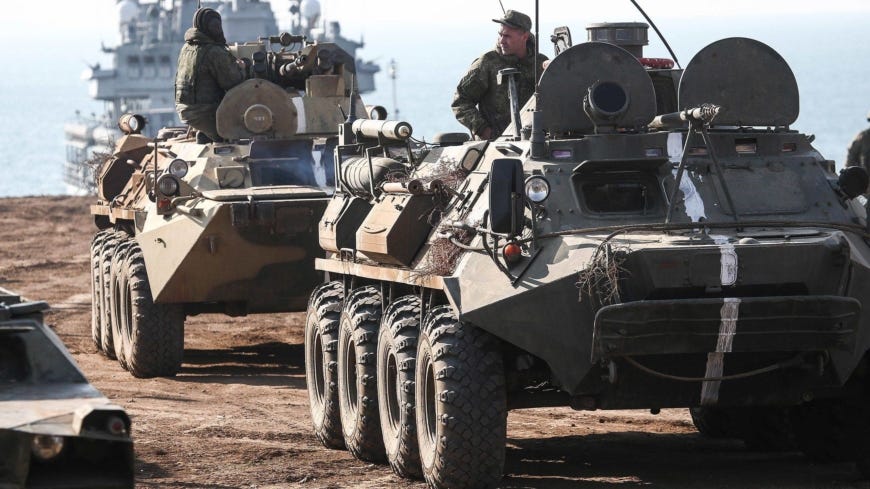Prosecutors say spreadsheets from Trump Organization offer a road map for its indictment. Where the investigation goes now is the question.
In prosecutors’ telling, the Trump Organization provided a road map for its own indictment.
In documents filed in New York Supreme Court last week, prosecutors claimed that the company had spent 15 years paying its chief financial officer “off the books,” giving him cars, an apartment, tuition payments and cash that were hidden from income tax authorities.
[Excel's hidden Smoking Gun function:]
But at the same time, according to allegations included in the indictment, the Trump Organization also was keeping internal spreadsheets that tallied the payments that were being hidden. [emphasis mine]
Prosecutors treated the spreadsheets as the accounting equivalent of a confession. They said the ledgers themselves showed the size of the fraud, estimating that Weisselberg alone had avoided paying more than $900,000 in taxes. And that concealment, they said, showed that the Trump Organization knew it was wrong. [emphasis mine]
“There is no clearer example of a company that should be held to criminal account,” Carey Dunne, a prosecutor with the office of the Manhattan district attorney, said as authorities charged the company and its CFO, Allen Weisselberg, with 15 felony counts.
Yet Thursday’s indictment left many questions unanswered.
Will anyone else be charged? Has the investigation narrowed to tax evasion alone? What about other topics that prosecutors earlier indicated in court filings they were investigating?
Still, legal experts say, the spreadsheets described on Thursday — and the narrow tax-evasion case they support — could cast a long shadow over former president Donald Trump and his company. [emphais mine]
Prosecutors have long indicated their desire to persuade Weisselberg, people with knowledge of the case have said, to “flip” and reduce his own legal liability by agreeing to testify against Trump and his company. And experts said the spreadsheets — at least as described by prosecutors — made the case against Weisselberg sound daunting for him.
“If you pay your employees under the table, a good rule of thumb is not to write it down,” said Daniel Hemel, a law professor at the University of Chicago. [emphasis mine]
Hemel said the ledger is likely to have made the decision to bring charges an easy one for Manhattan District Attorney Cyrus R. Vance Jr. (D) and New York Attorney General Letitia James (D): “It’s a big amount of money. It’s blatant violation of the law. And it’s well-documented.”
Trump himself has not been charged in the case; in Thursday’s arraignment, Dunne said the company’s “former CEO” — possibly referring to Trump — had personally signed “many of the illegal compensation checks.” The charging documents said Weisselberg orchestrated the scheme with “others” from the company but did not say who.
[Trump's explanation is of course absurd:]
Since the indictments were handed up by a Manhattan grand jury, Trump and those close to him have derided them as the last fizzle of a failed investigation. They have argued that after not finding any evidence of criminal activity, Vance and James simply dressed up normal corporate behavior — giving out perks to top employees — as a crime to hurt Trump.
[... but people are so used to absurdity out of Trump that most folks, including 100% of republicans, will undoubtedly simply accept it as true.]
At a Saturday night rally in Sarasota, Fla., Trump followed in that vein, accusing prosecutors of “weaponizing” the law against him. But he did not dispute their accusations.
“You didn’t pay tax on the car or a company apartment. You used an apartment because you need an apartment because you have to travel too far where your house is. You didn’t pay tax. Or education for your grandchildren,” he said.
“Murder’s okay. Human trafficking, no problem. But fringe benefits — you can’t do that.”
His son Donald Trump Jr. earlier compared the case to the Russian government’s imprisonment of opposition leader and Putin critic Alexei Navalny.
“This is the political persecution of a political enemy,” Trump Jr. said in a Thursday-night television interview on Fox News. “This is what Vladimir Putin does.”
During an arraignment hearing Thursday, prosecutor Dunne told Judge Juan Merchan that the indictments were not driven by partisanship. “Politics has no role in the grand jury chamber,” Dunne said.
Alan Futerfas, a Trump Organization attorney, declined to comment about the internal spreadsheets, as did Mary Mulligan, a Weisselberg attorney.
Spokespeople for Vance and James — whose offices recently teamed up after years of investigating Trump’s business practices separately — also declined to comment.
[Don't expect a quick result.]
The case against Trump’s company and Weisselberg could last well into next year and beyond, legal experts said, because the already balky New York state courts have been further slowed by delays and precautions adopted to protect against the spread of coronavirus. In addition, on Thursday, Weisselberg’s attorneys said they would need to review potentially millions of pages of evidence in the case, which could further slow the proceedings.
Futerfas, representing the Trump Organization, said the hard drives turned over Thursday by prosecutors — which represented just the start of document transfers — “might contain literally millions of documents,” and he argued that the defense needed more time to delve into them before beginning to file pretrial motions in the case.
“I can’t begin to fathom how much material that the defense attorneys in this case are going to have to sift through,” New York criminal defense lawyer and former Manhattan prosecutor Mark Bederow said.
The next hearing in the case is set for Sept. 20.
Vance and James have said their investigations will continue in the meantime. But they have not said much about the direction of their further investigations.
In the past, the two offices have indicated in subpoenas and other documents that they were looking at a large number of the Trump Organization’s past transactions — including tax breaks the company obtained by preserving open land at two properties, tax payments on $102 million of forgiven debt and hush-money payments made in the last days of the 2016 presidential campaign.
In some cases, investigators have sought documents about Trump properties with no public explanation of why.
In February, for instance, Vance’s office sent a subpoena for documents to the General Services Administration, which owns the building where Trump operates his downtown Washington hotel. That subpoena, which has not been previously reported on, was detailed in records received as part of a public documents request.
The GSA confirmed that the subpoena was received but would not say what documents Vance requested.
The GSA then twice wrote to Eric Trump, a Trump son and the family member who has been most involved in running the company since his father entered the White House, and asked whether the Trump Organization had any objections to its plan to send files to Vance.
Both times the Trump Organization did not respond, according to a memo written by GSA General Counsel Nitin Shah and laying out the events. The Washington Post obtained a copy of that memo as part of the records request. The GSA on May 25 sent Vance’s office an encrypted thumb drive and an encrypted zip file, the records show.
Trump’s D.C. hotel was not mentioned in Thursday’s indictments. Vance’s office declined to comment about the GSA request.
For now, prosecutors are focusing on Weisselberg, who has spent decades at the Trump Organization, and said in an earlier deposition for an earlier, unrelated case that his oversight of the company’s finances is so detailed that he would notice if a subsidiary was paying too much for pens.
But so far, Weisselberg has shown no interest in cooperating with investigators, according to people familiar with the case. At his arraignment, Weisselberg pleaded not guilty, and his lawyers said he would fight the charges brought against him.
As alleged by prosecutors in the charging documents, the Trump Organization lowered the level of income taxes for at least some of its executives, and payroll taxes for the company, by converting some of their salaries into other benefits.
Then, the documents alleged, they hid those benefits from tax authorities, reporting only the part of the salaries that appeared on paychecks. They said Weisselberg alone got more than $1.7 million of untaxed income.
But at the same time, according to charging documents, the Trump Organization wanted to make sure it did not overpay Weisselberg beyond the $940,000 he was supposed to make every year.
The result was the spreadsheets, in which the company allegedly tracked how much of Weisselberg’s salary had been converted into untaxed pay, the charging documents claimed.
“Weisselberg received the benefit of these payments, and the Trump Organization internally tracked and treated many of them as part of his authorized annual compensation,” prosecutors wrote in the indictment. The goal, they said, was “ensuring he was not paid more than his pre-authorized, fixed amount of gross compensation.”
The indictment did not describe the spreadsheets in detail or say whether the untaxed benefits allegedly given to other executives were tracked in the same way.
Legal experts said it was rare in tax-fraud cases to find that a company had kept clear records of its actions.
“You’ve got to get behind somebody’s mind. Did they understand what they were doing?” said Philip Hackney, a law professor at the University of Pittsburgh who previously worked in the IRS’s Office of Chief Counsel.
Hackney said that — if prosecutors are accurately describing the Trump Organization’s internal spreadsheets — those records would be strong evidence that Weisselberg knew the untaxed payments were income. “You’ve got a physical manifestation of knowledge,” he said. “Which is a pretty uncommon thing to have.”
It was unclear, from the indictments, how prosecutors obtained the internal spreadsheets. Vance’s office obtained millions of pages of tax returns and related documents from Trump’s accountants earlier this year after a court battle that twice went to the U.S. Supreme Court.
The Trump Organization has said it also provided prosecutors documents directly, in some cases, after being subpoenaed.
#Trump #Investigation #Prosecutors #Strategy
https://www.washingtonpost.com/politics/prosecutors-say-spreadsheets-from-trump-organization-offer-a-road-map-for-its-indictment-where-the-investigation-goes-now-is-the-question/2021/07/03/f7df06f0-db81-11eb-8fb8-aea56b785b00_story.html











